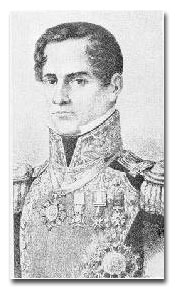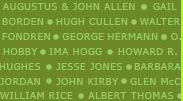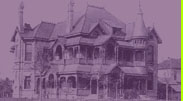OUR LEGACY - Anglo-American Colonization
 In 1763, the Treaty of Paris marked the end of the French and Indian War and effectively eliminated the French presence from Texas. The more aggressive English soon replaced the French. In 1803, the United States obtained the Louisiana Purchase from Napoleon, and with it the French claim to all of the lands west of the Mississippi. Anglo-American adventurers and colonists soon arrived in Texas, notwithstanding the opposition of the Spaniards who did not recognize any American rights to those lands.
In 1763, the Treaty of Paris marked the end of the French and Indian War and effectively eliminated the French presence from Texas. The more aggressive English soon replaced the French. In 1803, the United States obtained the Louisiana Purchase from Napoleon, and with it the French claim to all of the lands west of the Mississippi. Anglo-American adventurers and colonists soon arrived in Texas, notwithstanding the opposition of the Spaniards who did not recognize any American rights to those lands.
In the early 1820's, colonists began settling the land grants which Stephen Fuller Austin, the "Father of Texas," had secured. After Mexico gained independence from Spain in 1821, the Mexican government received the settlers warmly. Mexico was especially interested in establishing a buffer against invading Indians, particularly the Comanche's from the north.
The original Texas colonizers, 297 families in all, became known as the prestigious "Old Three Hundred." Transforming the territory from a Spanish wilderness into an Anglo-American republic, some of the families chose to settle first in the present Harris County area. Among them was John Richardson Harris, grandson of the founder of Harrisburg, Pennsylvania. In 1826, Harris founded a settlement on the north side of Buffalo Bayou near its junction with Bray's Bayou, and called it Harrisburgh, later Harrisburg. In this first town site, now known as Houston, Harris established a trading post and a sawmill.
The 1830's was a decade change in Texas. The Anglo-American settlers in the territory soon outnumbered the Mexicans, who became increasingly anxious about the growing Anglo presence and power. On April 6, 1830, the Mexican government who annexed the territory to the Mexican state of Coahula and prohibited both additional settlement of the area by colonizers from the United States and the importation of more slaves. Moreover they imposed custom, duties and taxes, and stationed Mexican soldiers in Texas at the colonists' expense.






